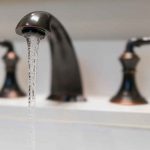Leaks may discolor sink surfaces, erode drains, waste energy and sewer pipes (in the case of a hot water leak), and overall cause problems for you and your property. We’ve collected a list of some causes and how to fix a leaky faucet to help you save money.
Causes
We need to understand the particular reasons why tap drips. The following are some of the most frequent explanations:
The O Ring Has A Problem

The water tap handle is held in place with a stem screw. The O ring is a tiny disc linked to this stem screw. This is a critical region where leaks can occur. Over time, the O ring might become loose or worn out, causing the faucet to drip near the handle.
Valve Seat Corrosion
A valve seat connects the tap and the spout in the compression mechanism. The valve seat might erode due to the accumulation of water sediments, resulting in leaking around the spout region. With the aid of a competent plumber, clean regularly.
Worn Out Washer
A worn-out washer is one of the most common causes of dripping faucets because it is forced against the valve seat each time it is operated, causing it to deteriorate due to friction. To halt leakage, replace old rubber washers.
Installing A Washer Incorrectly
A leaky spout might occur if it is not correctly installed or is the incorrect size.
The Water’s Pressure
Your home’s water pressure could be to blame if the faucet drips only at specific times of the day or when the faucet handles are moved in a certain way.
Non-assembly parts
Over time, the stream screw’s adjustment nuts for ring and packing have the potential to loosen, resulting in a leaky sink handle. A leaky hydrant can usually be fixed by tightening or replacing the packing nut.
A Broken Cartridge
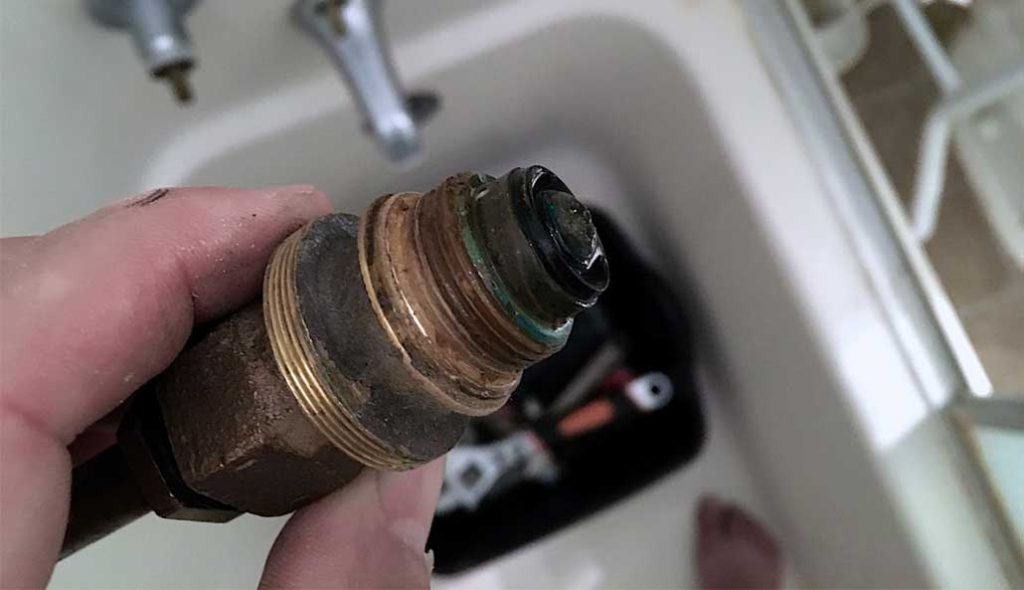
You have a cartridge-style faucet if it has two handles for hot and cold water. A valve controls the cartridge’s water flows into the spout on each handle. If water is dripping from your valve, it is an indication that the cartridge has been damaged.
How To Fix A Leaky Faucet (Double-Handle)
Ceramic disc, rotary ball, and cartridge are the three basic types of faucet structure in the process of learning how to fix a faucet. All of these terms apply to the internal design of the faucet, as well as how it regulates water temperature and flow.
Because they’re all created differently, they’re all vulnerable to distinct issues. It can help to know what type of faucet you have in determining what type of repair is required.
Keep in mind that the bodies of certain cartridges & disc bodies/cylinders made of ceramic may resemble each other. The cartridge body has no moving parts in most circumstances. Moving pieces rotate to open the apertures on the bottom of the ceramic disc body/cylinder.
Kitchen and bathroom water taps, including baths and showers, may all be fixed using these instructions. The methods outlined here are standard but always refer to your tap’s manufacturer’s instructions.
Find The Leak
Shut off the water supply valves one at a time to figure out which side of your water tap is leaking.
Turn off all supply valves when you’ve figured out which side is leaking.
Cut the water main if your valves have become clogged. Because you won’t be able to tell if it’s leaking from the cold or hot side, you’ll have to replace the hardware on both sides.
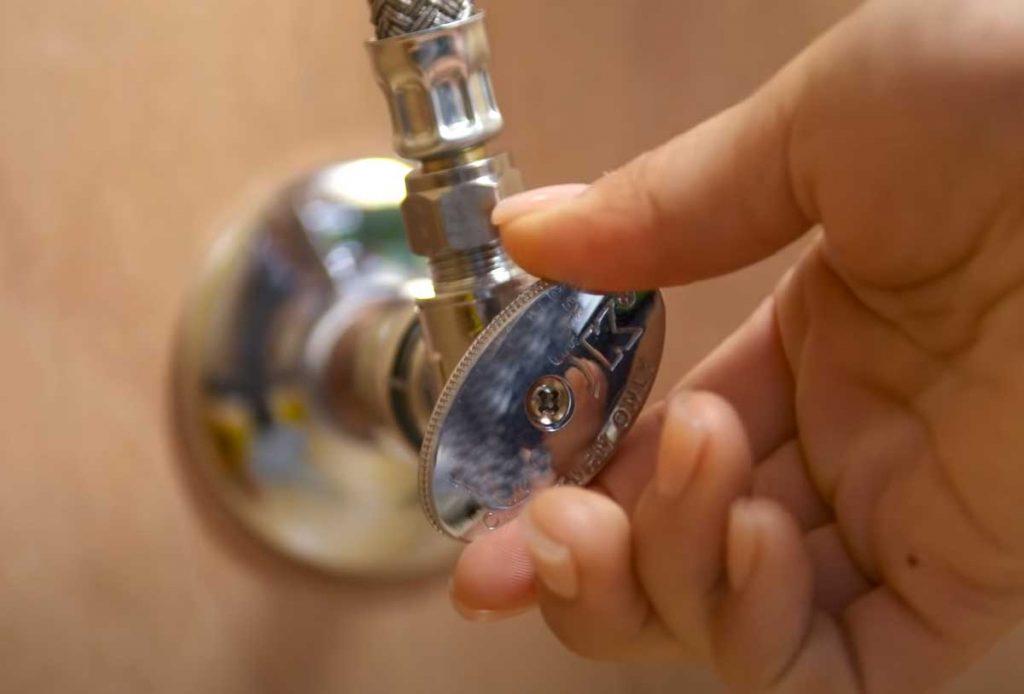
Remove The Faucet’s Parts
To begin, disassemble the faucet.
Step 1
Turn the water tap knobs to the “on” position to discharge any remaining water. Close the drain and cover the sink with a towel to preserve any spilled objects from the surface.

Step 2
Remove and examine the aerator for any damage. Dip a cloth and wrap the aerator in vinegar to dislodge mineral deposits. Twist the aerator gently with a cloth and pliers after an hour.
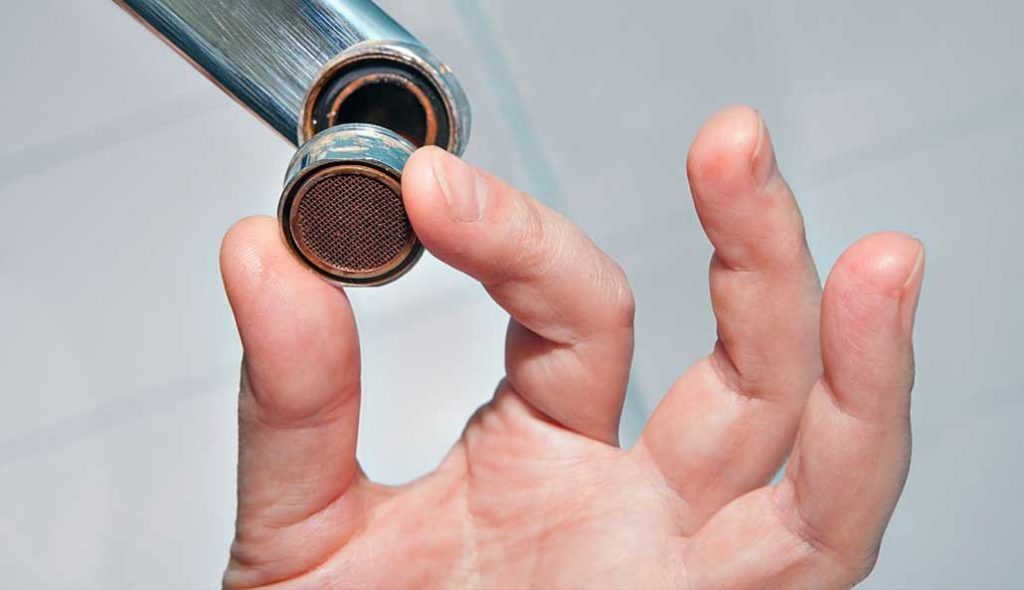
Step 3
As you remove the old hydrant, lay the components out on a flat surface and snap a photo for reference. Put those components in Ziploc bags and bring them with you to the hardware store when you go shopping.
Although you may only need one item, it’s probably advisable to get a whole new kit and renew everything, including the aerator, if yours is broken.
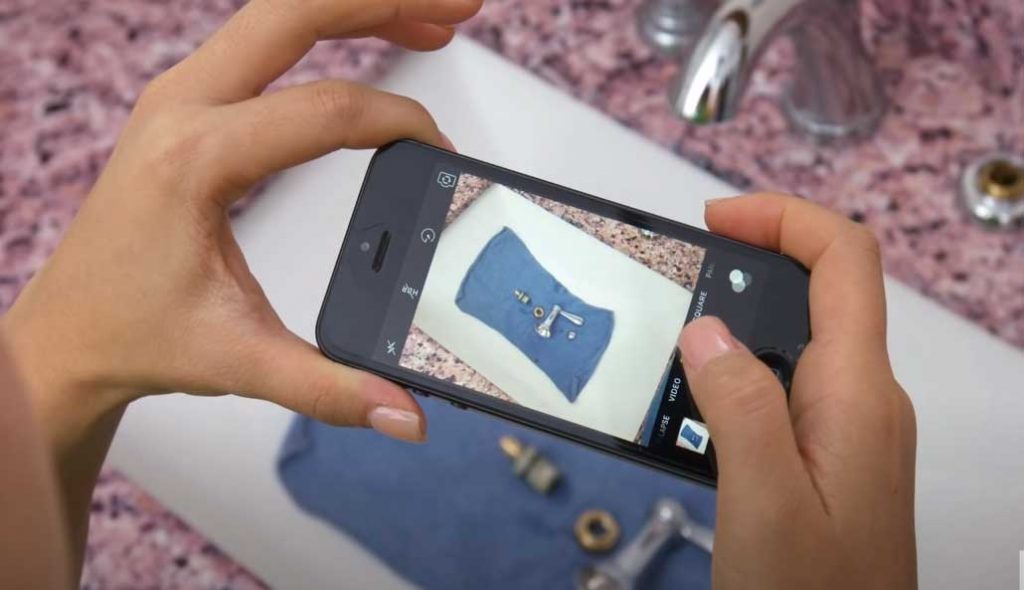
Faucets With Ceramic Discs
This nozzle type uses a cylinder with tiny discs on the bottom that control water flow. The most effective repair is replacing the complete cylinder.
Step 1
By loosening the set screw, the faucet handle can be removed.

Step 2
Remove the cylinder by unscrewing the retention nut or mounting screw.
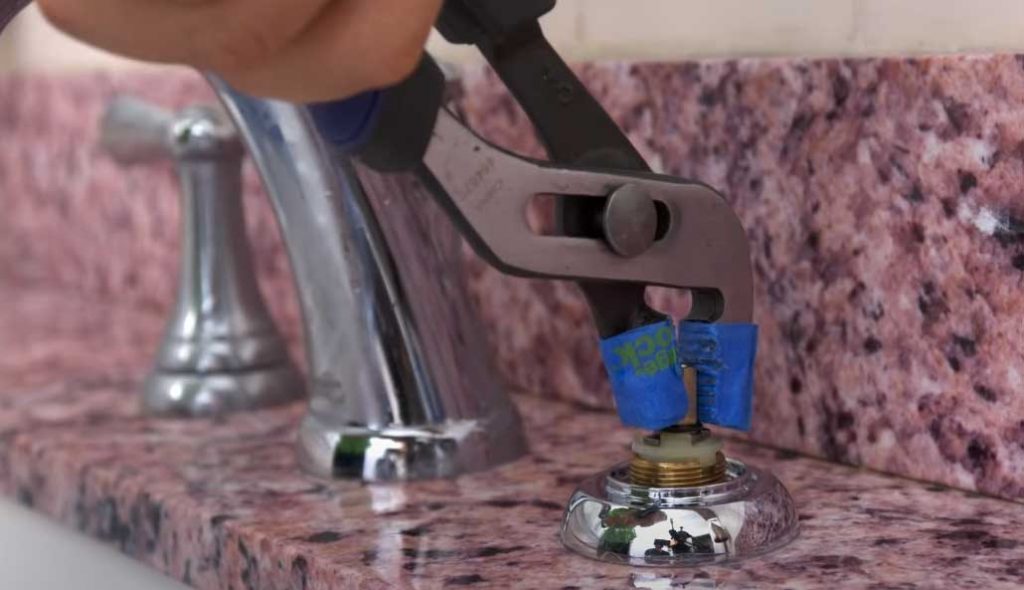
Step 3
Reassemble the faucet after installing a new cylinder.

Step 4
Turn on the water supply gently with the water tap on. The new hardware might be damaged if there is too much initial pressure.
Compression faucet And Reversible Compression
The valve stem washer and O-ring or gasket, in addition to the faucet’s valve seat, will all be replaced in this repair.

Step 1
Pry off the temperature indication cover and remove the screw to reassemble the handles or knobs. Take the faucet handles from the base.
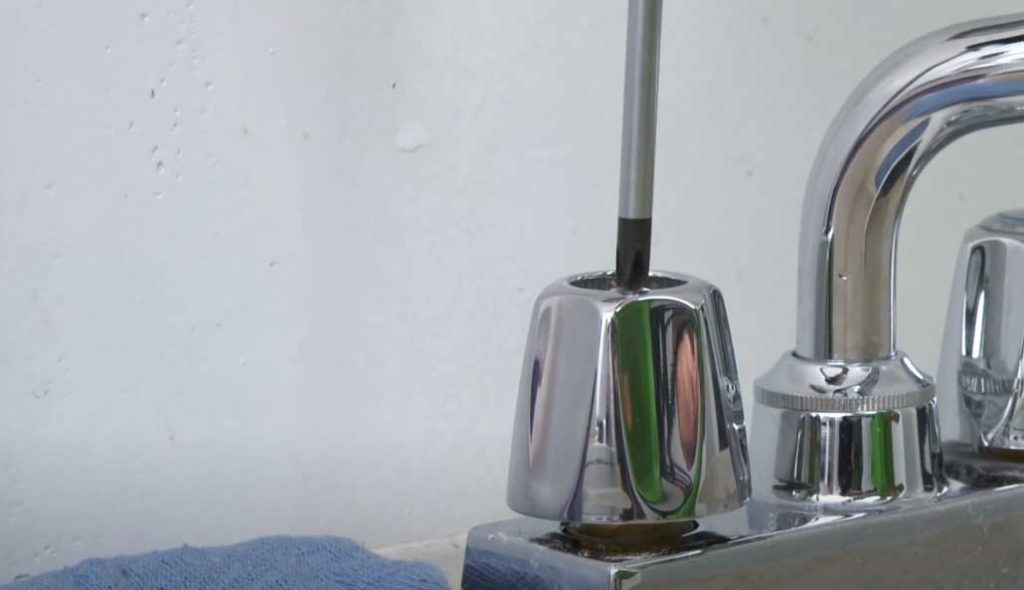
Step 2
Remove the valve stem by loosening the retaining screw using a wrench.
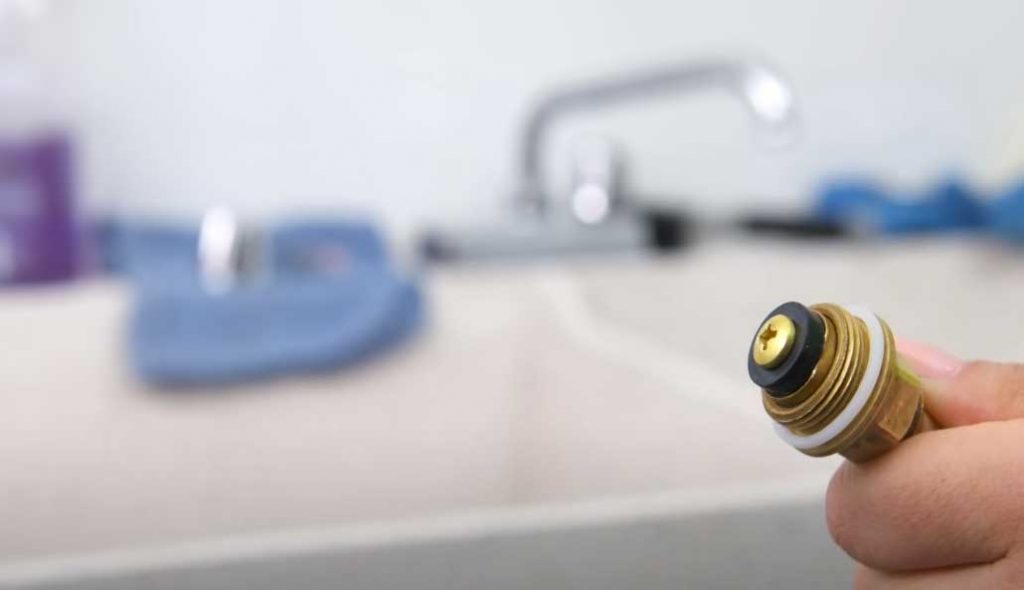
Step 3
Remove the screw, washer, and old O-ring from the stem.
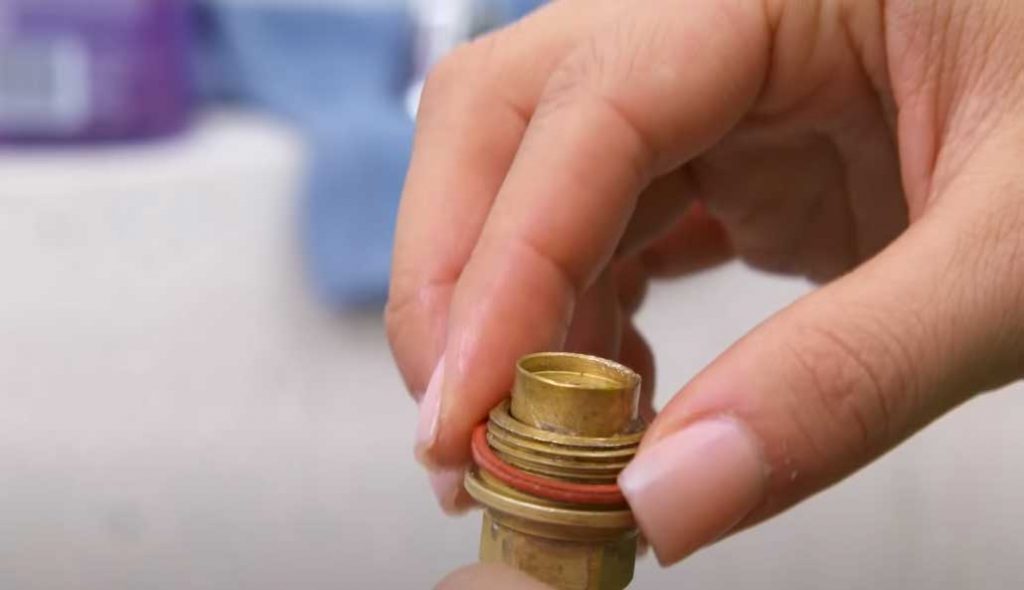
Step 4
Replace the O-ring, screw, and seat washer, then apply the plumber’s grease to the stem.
Step 5
Remove the valve seat and replace it using a seat or hex wrench.

Step 6
Replace the parts of your hydrant.
Turn the faucets’ handles gently to turn on the water supply. If there is too much initial pressure, the new hardware may be harmed.
Cartridge Faucet
Step 1
Unscrew the set screw to remove the faucet handle. Take out the retaining clip or screw if applicable.

Step 2
Pull the cartridge gently out of the printer and swap it out for another one.

Step 3
Put the faucet back together. Turn the water supply on slowly using its knobs in the “on” position. Remember that an excessive amount of early pressure might harm the new hardware.
Step 4
Allow the water to run for some minutes without the aerator after reassembling your faucet to eliminate debris from the new components.
Soak your old aerator into white vinegar to erase buildup and residues. Before you reinstall it, please give it a good rinse.
Video – How To Fix A Dripping or Leaky Double Handle Faucet
Source: Lowe’s Home Improvement
FAQs
When Should I Replace Instead Of Repair?
A decent rule of thumb is to go by its age when replacing any equipment. Faucets are designed to survive for 15-20 years on average. If your hydrant sink is reaching the end of its useful life, it’s time to think about replacing it.
When To Call A Professional?
Faucet leaks can be caused by damaged pipes or excessive water pressure. This is the time that you should seek expert help with your plumbing issues.
How Much Will A Plumber Charge?
Plumbers charge between $45 and $150 per hour, with a minimum service call-out cost of $50 to $100. Taking care of a clogged toilet or a leaking faucet might cost anywhere from $125 to $350. Larger jobs, such as repairing a pipe leak, will set you back $500 to $800.
Is It Easy To Fix A Leaky?
Repairing a leaking faucet is simple and affordable, and even the most inexperienced DIYer can do it.
How Do You Stop Dripping Faucet Temporarily?
Chewing gum is another band-aid for a drip water tap. Add chewing gum to the tree’s base with minor wear and tear gaps. Then, turn on the faucet and check for any drips in the water.
Do You Have To Turn The Water Off To Repair The dripping faucet?
Turning off the water is one of the most critical stages about how to fix a leak faucet. You risk flooding your bathroom/kitchen if you don’t turn off the sink water supply.
Therefore, unless you’re replacing outdoor faucets and don’t worry about the full-force spray that will gradually flood the earth, don’t try to replace a dripping faucet without shutting off the water.
Conclusion
In about an hour, you can repair nearly any single-lever kitchen hydrant sink that drips. Even for a beginner plumber, the repair is much simpler than it appears. That’s because how to fix a leaky faucet has been described in full by us above.



